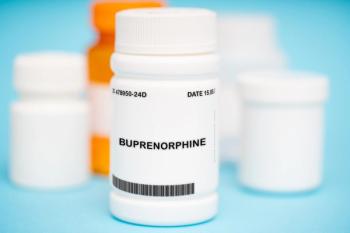
Ohio R.Ph. may avoid criminal trial
An involuntary manslaughter charge against a hospital R.Ph. involved in a fatal Rx error was reduced to negligent treatment of a patient, a low grade misdemeanor. The criminal indictment on manslaughter charges had raised alarm in pharmacy circles.
NEWSBREAKS
MAJOR STORIES FOR PHARMACISTS AT DEADLINE
Ohio R.Ph. may avoid criminal trial
A criminal indictment against an Ohio hospital pharmacist for a fatal medication error will be dropped and the charge downgraded to a low-grade misdemeanor under a tentative settlement reached last month in Toledo.
Daniel Scott, R.Ph., will not face trial for involuntary manslaughter if he qualifies to have his case diverted from a criminal matter to a special program. As part of the settlement, he will have to complete an education program. If a court rules in his favor at a hearing set for May 28 to determine his eligibility, the one-count criminal indictment will be dropped in favor of the minor misdemeanor of negligent treatment of a patient, said his attorney Jerome Phillips.
"This will be the best possible result for Daniel Scott," Phillips told Drug Topics. "All his cases will be dismissed, and his record will be sealed."
A longtime pharmacist at Riverside Mercy Hospital, Scott was indicted last October for a medication error that killed a cancer patient in July 2000. Prosecutors had charged that he mistakenly quadrupled the dosages of doxorubicin and vincristine he dispensed at the hospital's outpatient pharmacy. As a result, the patient, Lyle Ganske, died of an overdose.
The medication error was triggered when a nurse rewrote the physician's original order, according to James Brazeau, an attorney who represented Scott before the pharmacy board last August. He said that the original order called for only one dose spread out over four days, but, in a phone call, the nurse indicated that the dose was to be "times four days." The pharmacist interpreted that order as one dose for each of the four days, which quadrupled the dosage.
It was wrong and counterproductive to bring criminal charges against Scott, according to Michael Cohen, R.Ph., president of the Institute for Safe Medication Practices. He has long been a champion of the view that all medication errors can be traced to flaws in the system. He said that he has been tracking the case and talked with attorney Phillips and Scott, offering his support.
"Punitive action should never have been taken against him," Cohen said. "There were just too many flaws in the system they were using that allowed the error to happen. I don't see what benefit punishing someone brings to the table. It's not going to warn other pharmacists. Warning other pharmacists means telling them what happened and how to prevent it."
The Ohio pharmacy board imposed the maximum fine of $1,500 on Scott for the medication error. Although the victim's family had sought additional disciplinary action, the board did not suspend or revoke his license. It did, however, levy a $500 fine against a second pharmacist for failing to properly review the script.
Carol Ukens
Carol Ukens. Ohio R.Ph. may avoid criminal trial. Drug Topics 2002;9:26.
Newsletter
Pharmacy practice is always changing. Stay ahead of the curve with the Drug Topics newsletter and get the latest drug information, industry trends, and patient care tips.























